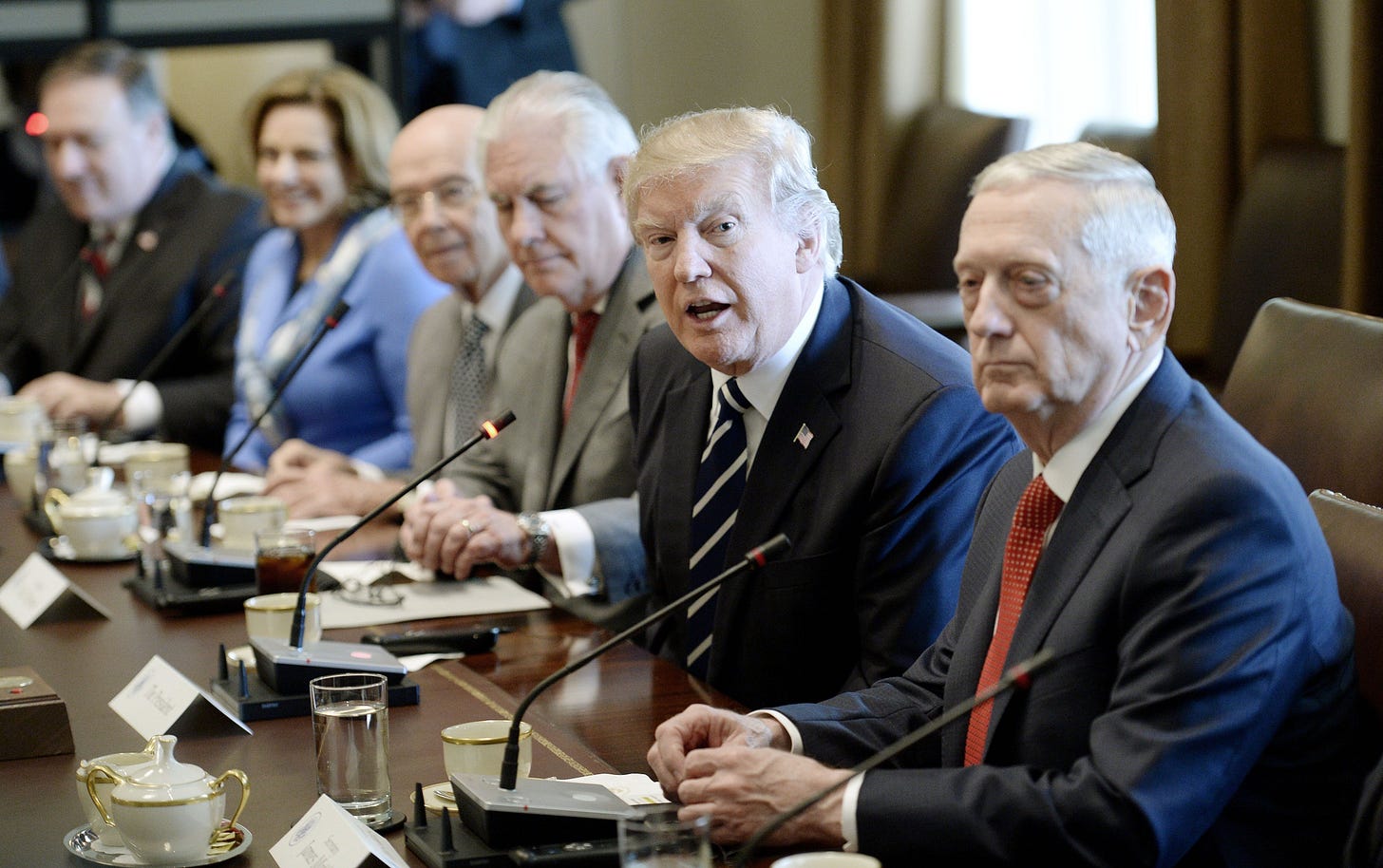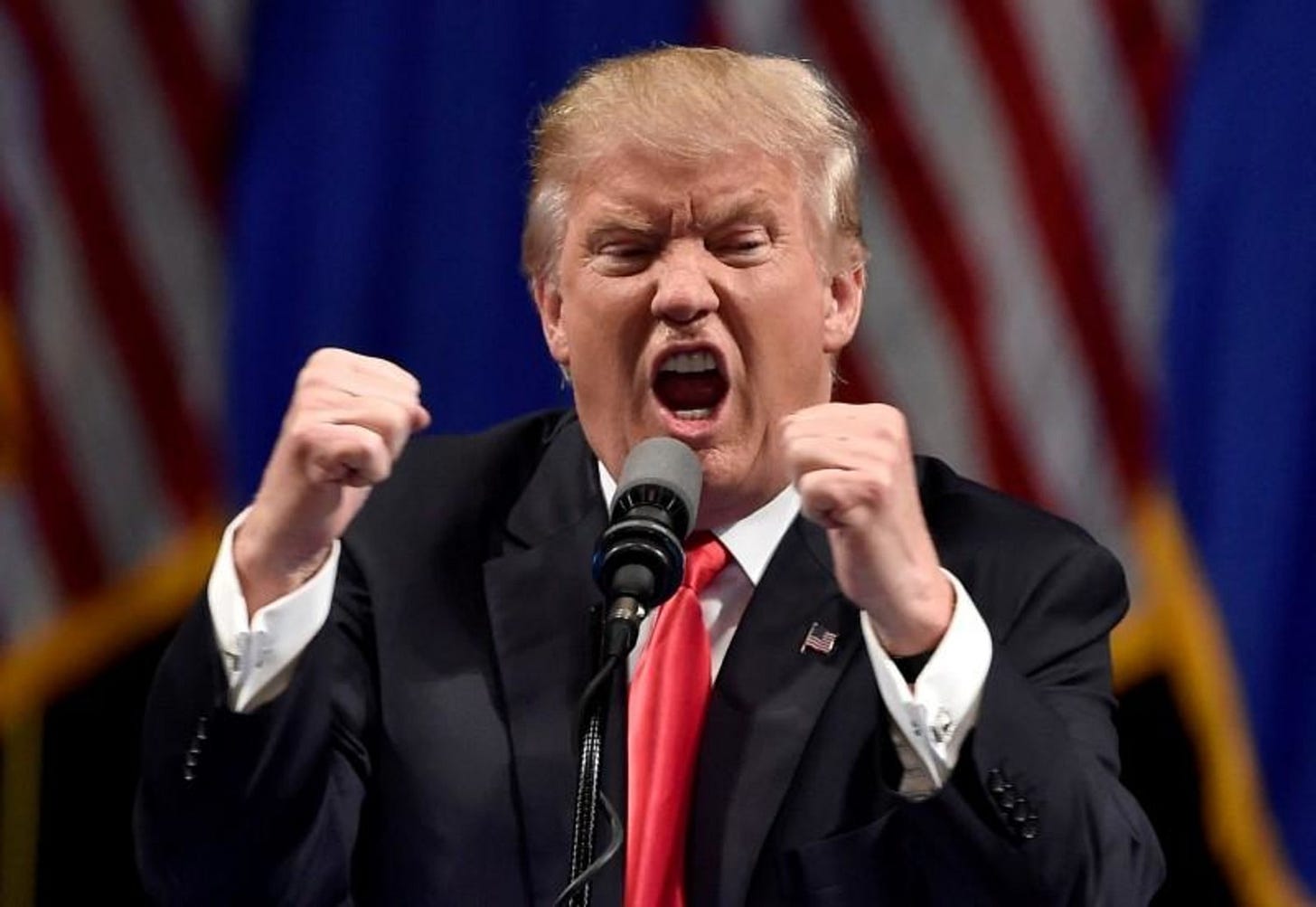The arrival of June in any presidential election year typically means that the stifling "dog days of summer" draw near, hurricane season has arrived in the Atlantic Ocean, and the two major political entities, the Republican and Democratic Parties, will soon convene to nominate their presidential standard bearers for the Fall.
With it being rather clear that a Biden-Trump rematch was in the offing ever since Trump steamrolled past his Republican opposition during the primary season, many of the major news headlines have focused on the perceived strengths and weaknesses of those two men—the only two viable candidates for the presidency this year.
From a policy standpoint, in recent months, that focus has been largely centered upon inflation and the high costs of goods and services at home, and the deadly wars in Gaza and Ukraine abroad. From a personality standpoint, the major focus has been on popular perception that President Joe Biden has lost a step and lacks the mental acuity for a second term—while former President Donald Trump is now a convicted felon facing the prospects of conviction in three other criminal cases that are pending in federal and state courts along the Eastern Seaboard.
While each of the above mentioned issues is serious and worthy of the ink they receive in the mainstream and niche independent press, it is important to note that since the Constitution was ratified in 1787, that the Executive Office of the President, as an institution, has been far more important than the men who have sat in the Oval Office. Meaning, with no pun intended, policies trump personalities when the curtain finally drops on any given administration. Cognizant of this truth, over the next several weeks, the Hobbservation Point will analyze platform planks from both major parties in order to spark dialogue about where America is heading over the next four years.
To begin, consider the following rhetorical question: "What do you know about Project 2025?"
If your answer is "little to nothing at all," that's ok—in the weeks ahead you will learn all that you need to understand this pet conservative project that could alter the scope, breadth, and depth of our nation's federal government.
Now, if you have had a chance to listen to former President Trump angrily list all of the things he would do to get back at the "vermin" that are "poisoning America" (his words), you may have dismissed the same as the rantings of a mad man or a comedic troll, depending upon your bent. While I've often expressed my opinion that Trump is dim-witted and a very poor public speaker, after reviewing Project 2025 over the past several weeks, it is rather clear to me that he is actually just intelligent enough to hit on some of the major themes that far brighter conservative men and women have drawn up to "take their country back" and "Make America Great Again." 👀
To begin, I must point out that the notion of radically restructuring the federal government is as old as the federal government itself. Indeed, pick a period in American history, and I can show you where the major parties and most influential presidents moved to shift the scope of government based upon the given popular (or unpopular) public sentiments of the day.
Over the last 100 years, four presidents in particular, Democrats Woodrow Wilson, Franklin Delano Roosevelt, and Lyndon B. Johnson, and Republican Ronald Reagan, used their influence to bend civil service and shape government in the images that their financial benefactors desired. Nota Bene: In future columns, I will reference specific instances from each of these prior presidencies to compare and contrast with the stated desires of President Biden and Mr. Trump during this election year.
But for today's essay on Project 2025, I think that it's appropriate to reference Ronald Reagan, the former California governor who soundly defeated President Jimmy Carter in 1980.
In 1979, not long before Reagan was elected, the Heritage Foundation (founded 1973) tasked its academic fellows to jot down ideas that could guide a conservative presidential administration in the near future. In January of 1981, only days before Reagan was sworn in as the 40th President of the United States, the Foundation produced a manifesto entitled "Mandate for Leadership"—one that would serve as a blueprint for the fiscal and social conservatism of the Reagan administration.
During his very first Cabinet meeting on January 22, 1981, Ronald Reagan (shown above) passed out copies of Mandate for Leadership by the Heritage Foundation…
As comprised, the newer Project 2025 is but the latest iteration of the original 1981 manifesto, one that will assuredly serve as the primary guiding force during a second Trump administration should the former president become the first chief executive to serve non-consecutive terms since Grover Cleveland was elected as the 22nd and 24th president during the late 1800's.
A lame duck President Trump would cling to Project 2025 in the same way that Reagan clung to Mandate for Leadership…
Project 2025 is funded in large measure by the Heritage Foundation, the Koch Brothers, and various anonymous donors who are decidedly conservative in their politics. The project is helmed by two white males, Paul Dans and Spencer Chretien, a fact that should come as little surprise when considering that the pervasive undercurrent of modern day conservatism is white grievance, in general, and the mendacious argument that white so-called Christian males are in danger of being "replaced" by women, "The Blacks," Latinos, Asians, and Muslims.
Thus, Project 2025 lays out its primary goals in its creed by stating:
"...the assorted actions of liberal politicians in Washington have created a a desperate need and unique opportunity for conservatives to start undoing the damage the Left has wrought and build a better country for all Americans in 2025. It is not enough for conservatives to win elections. If we are going to rescue the country from the grip of the radical Left, we need both a governing agenda and the right people in place, ready to carry this agenda out on day one of the next conservative administration.”
In their 920 page tome, the authors of Project 2025 outline the goals that would guide Trump 2.0. These goals include plans to:
A. Defund the Justice Department;
B. Dismantle the Federal Bureau of Investigation;
C. Break up the Department of Homeland Security;
D. Eliminate the Department of Education;
E. Shut down the Department of Commerce;
F. Grant the president "complete power" over the Federal Communications Commission.
While conservatives, dating back to the days of Reagan, have always complained that the federal bureaucracy is "too big" and usurps powers that should be granted to the states, the departmental "elimination wish list" has heretofore been more quixotic than actual achievable goals.
But love him or loathe him, Trump, through his bombastic rhetoric and refusal to comply with societal norms, has inspired a number of conservatives to push past their dreams to actively create a scaled down government that, in the name of "freedom," actually would leave most Americans in danger of having few federal protections from bad actors or systemic bad faith.
To address the conservative elephant in the room, the urgency of Project 2025 is that the more clever conservative think tank types realize that in Trump, they have a leader who moves the rank and file to the polls in numbers that far more politically astute and intelligent conservatives cannot.
There's a reason that folks like Ron Desantis and Nimrata "Nikki" Haley got whooped by Trump in the primaries, and that's because the average Republican primary voter is not well versed in conservative dogma, but is well versed in Trumpian "Build that Wall," anti-immigrant, anti-diversity grievances that are spewed at each rally and on Truth Social. In other words, conservatives must strike while the striking is hot when considering that as older conservatives die off, they are being replaced by Gen Z'ers who trend progressive in their politics.
Many Trump supporters refuse to abandon ship even after last week’s conviction in New York…
And to be clear, the reason that the Justice Department is in peril under Project 2025 is because limiting or destroying that department altogether would gut formal redress of civil rights cases as brought by the federal government, while also potentially allowing the individual states to bypass key provisions from the Voting Rights Act of 1965 that keep Southern States from screwing over Black voters like their ancestors did during Jim Crow.
In similar vein, defunding the FBI would eliminate the very agency that's been at the center of investigating the election interference crimes that led to Trump's indictment in D.C., and the classified documents case that he faces in South Florida. More ominously, the lack of a federal law investigating bureau (coupled with closing Homeland Security) could also lead to all manner of state level policing shenanigans that could harm people of color, legal immigrants, poor white people, and non-Christians—all the while leaving America open to another 9/11 type of attack.
Last, ever since Trump lost his rights to post on Facebook, Twitter, and just about every social media platform due to his stoking up the January 6th MAGA riots on those platforms, he and his followers have griped and moaned about the "First Amendment”—and vowed vengeance. Well, the desire to grant a president almost unchecked authority over the Federal Communications Commission is but the first step to politically socialized communications in America, and the vengeance Trump and the MAGA’s seek over what they deem the “Fake News” media.
Again, in the weeks ahead, I will go even deeper into the "why" and long-term ramifications of Project 2025 as a guiding light for a second Trump administration. But in the meantime, I ask my readers to consider your own lives, the lives of your recent ancestors, and the lives of your descendants and ask whether you will feel better off living under a presidential administration that has no Justice Department, no Education Department, and is endowed with exclusive control over how media are handled in the United States?
Feel free to drop a line and let me know your answer!










Interesting points were made here. He was never the candidate that the GOP wanted, however, he is the one that allows them to mutate the democracy into the slumbering beast that awaits in November. The framework has been laid to cripple free thought for decades to come.
This is a valuable lesson you are going to be teaching here. Love it (the analysis, not the horrible "project"). Thanks for all you do!